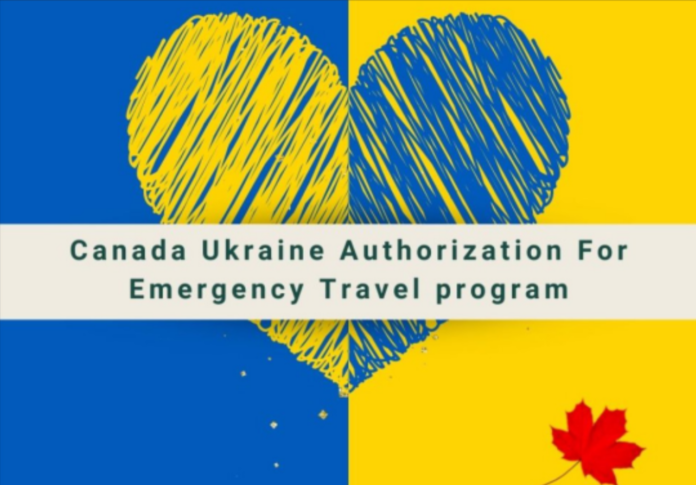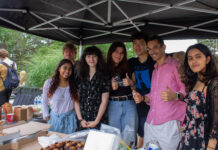The Russian invasion of Ukraine has unveiled important issues in our global society regarding our attitudes about refugees, race and inequalities within crisis response.
In our hyper-globalized world, it is extremely unlikely that any part of the world can remain insulated from the effects of erupting conflicts — be it an active and ongoing invasion, or a large migration of people seeking safety. However, countries and societies must be open to self-introspection and always look out for discrepancies in refugee reception response — whether intentional or inadvertent.
Let’s look at the case of refugees. According to UNHCR’s Operational Data portal, more than 2,969,600 have fled Ukraine into neighboring countries like Poland, Slovakia, Hungary, Romania and Moldova. The United Kingdom is another popular choice, and the U.K government has already launched a ‘Homes for Ukraine’ program, which provides local families with government payouts to host Ukrainian refugees in their homes. In this accelerated scheme, Ukrainian refugees are welcome to stay and work in the U.K for up to three years, with unrestricted access to health, education and welfare.
Similarly, Canada has launched specialized programs to assist Ukrainian refugees. Immigration, Refugees and Citizenship Canada (IRCC) implemented the Canada-Ukraine Authorization for Emergency Travel program, which welcomes Ukrainians to stay in Canada for two years, and there is no limit to the number of Ukrainians who can apply. Additionally, the Canadian government has introduced a special accelerated family reunification sponsorship program for providing permanent residency to fleeing Ukrainians. Work permits and priority work permit renewal have been opened to Ukrainian visitors, workers and students.
Even companies like Airbnb have reported a surge in new sign-ups, as about 21,500 new hosts (including Canadians, Americans and Europeans) have signed up to offer temporary housing for up to 100,000 refugees. In the last two months alone, about 6,100 Ukrainians have been accepted by Canada.
On one hand, countries need to be lauded for their commitment to adapting their refugee intake policies to accommodate those fleeing war and atrocities. On the other hand, the garish discrepancies in countries’ response to refugees does not sit right — namely in the case of the Syrian refugee crisis and the Afghan refugee crisis.
In fact, Western immigration policy has rarely ever adapted with such fervor for any African, South Asian and Middle Eastern refugees, many of whom are routinely turned away at borders. Western governments, media and societies have demonstrated an empathy gap based on notions of racial sameness and otherness.
When the Harvard-educated Bulgarian Prime Minister Kiril Petkov said about the Ukrainian refugees that “these people are educated and intelligent people,” unlike the previous wave of refugees that he had seen with “unclear pasts [and] identities, possibly terrorists,” the writing was clear on the wall. When an Al Jazeera TV (which is funded by the Qatari government) presenter said that Ukrainian refugees “look like any European family that you would live next door to,” it revealed deep-rooted biases and prejudices that have underpinned migration policy and anti-migration sentiments for racialized refugees and peoples of color fleeing war and conflict.
In the same vein, when Afghan refugees were fleeing their country following the Taliban takeover, or Syrians were fleeing the horrors of the civil war, the reaction of host governments ranged from lukewarm, half-hearted, to even openly hostile, as in the case of a Hungarian reporter who kicked migrants while filming.
In the case of Afghan refugees, many are still navigating red tape in trying to escape the country. There is no official process in place to expedite applications on a priority basis, as is present in the case of Ukrainians. Similarly, in the last seven years, Syrian refugees have experienced violence and serious human rights violations across European borders as they tried to flee to safety. Europe has toughened migration and asylum policies since the Syrian crisis, and many Afghans are paying the price.
The treatment of Ukrainian refugees has confirmed the embedded racism in migrant and asylum policies in the western world — something the developing world has alleged for a long time. But empathy must not come at the cost of color, creed, or language. Everyone needs to do their part in ensuring a conscionable response.
To this end, here are some ways to help:
Resources and Initiatives for Ukraine refugees in the K-W region
- The Ukrainian Orthodox Church of St. Sophia is accepting humanitarian aid packages for Ukraine from Monday to Saturday 12-8 pm and Sunday 12-2 pm. They are also accepting monetary donations for humanitarian aid for Ukraine. More information at https://www.sophiachurch.com/
- The Ukrainian Catholic Church of the Transfiguration is asking residents to make monetary donations through CNEWA Canada at: https://cnewa.org/ca/campaigns/ukraine/
- The Rohr Chabad Centre for Jewish Life, together with the Kitchener Waterloo Jewish Community, is asking community members to make monetary donations to support the Jewish community of Mariupol. More information at https://www.jewishwaterloo.com/templates/articlecco_cdo/aid/5428320/jewish/Support-for-Mariupol.htm
- Wilmot Township community members have created a website to coordinate resources to support refugees fleeing war and create opportunities for people to meet others looking to work on similar projects. https://stephaniesgoertz.wixsite.com/iwlmotsupportrefuge/
- Clothing donations are being accepted at the Salvation Army, Thrift on Kent, and ReStore Habitat For Humanity Waterloo Region. Immigration services can be accessed at the YMCA and the KW Multicultural Centre.
- KW Counseling Services offers resources on a needs-based pay scale. https://www.kwcounselling.com/
































